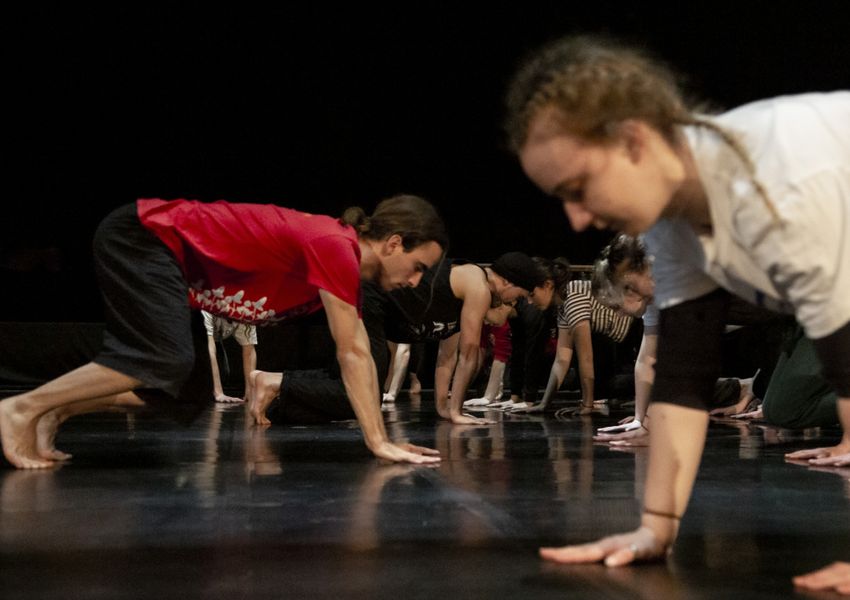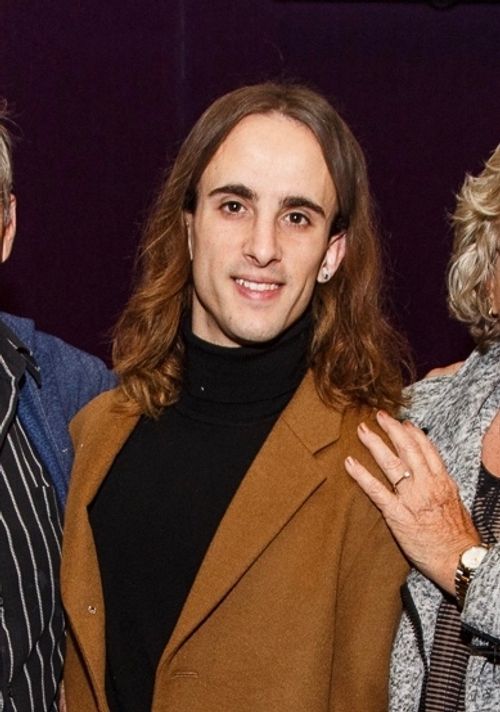Journeys
Jye Uren - tracking towards a career in dance
Starting dance training at the age of 16, Jye recalls what sparked his love of dance, and the importance of mental stamina in sustaining a career.
Starting dance training at the age of 16, Jye recalls what sparked his love of dance, and the importance of mental stamina in sustaining a career.
You need to just go for it – don’t wait around, just go! … Trust your instincts – trust yourself!
The first style of dance I trained in was contemporary – contemporary with strong balletic influences – that’s just how my teacher was trained. I was 16 years of age and I was in grade eleven.
When I think back, what made me want to start training in contemporary dance was tumbling. I had done gymnastics for a few years, from the age of around ten to thirteen. My friend and I decided to take dance as an elective for grade eleven – we took it on as a bit of a joke! My friend didn’t last, but by the time I was in grade twelve I had become really serious about dance and I realised I could use my gymnastics background to help me with contemporary movements. Looking back, when I think about it, dance actually helped me through high school.
On finishing high school, I auditioned for NAISDA Dance College (the National Aboriginal and Islander Skills Development Association) and was accepted into the Certificate Two, Careers in Dance course in 2014.
It would have been so great to learn dances from my Country, while on my homeland.
When I joined NAISDA, I understood the physicality of contemporary dance, but I’d never experienced any traditional dance. I wish I’d had the opportunity to do traditional dance as an extracurricular activity when I was at school; it would have been so great to learn dances from my Country, while on my homeland – Worimi Country (Port Stephens area, NSW). The very first time I did traditional dance, I was really nervous. I didn’t know what to expect. It was traditional Yolngu dancing and I felt like I had to get it right. I’d never done traditional dance before and holding something so sacred and precious, and something that wasn’t mine, made me nervous. After a few years of experience, I love doing and performing traditional dance … but I still feel a professional urge mixed with a cultural sense to get it right … and this gives me anxiety! I don’t want to portray it wrongly and upset my Elders! But I still love doing it … over time I’ve learnt that I’m able to put some of my own style into it!
I think NAISDA gave me a great grounding for my dance career. If I’d never gone there, I’d not have learnt about communities, law, culture and the different ways people live their lives.I come from a place that was colonised early on, so my family knowledge has mostly been lost. At NAISDA, I learnt about other Aboriginal cultures and about Torres Strait Islander people; I went to Moa (Torres Strait Islands) and learnt some of the cultural practices there. The course also trained me up as a dance maker and teacher; I learnt different ways to make up classes, different dance techniques and creative methods.
After completing my studies, I spent a year as an Independent Dance Artist. I enjoyed this year, making connections, taking responsibility for my fitness, keeping engaged and motivated. Whilst at NAISDA, I was fortunate to meet Jack Grey – internationally-renowned Choreographer, Dancer and Atamira Dance Company’s Founding Member and Artistic Director (since 2018). This link generated more connections both here in Australia and in New Zealand. I was able to compare the subtle differences between life as an Independent here and abroad. I feel that Atamira Dance Company invests lots of time working closely – collectively – to create a united group energy and this supports the composition and helps the flow of the work. I liked that.
... you have so much support and so much knowledge from your ancestors and Elders! … You can do anything!
I joined Bangarra at the start of 2019. I was eager to experience what it’s like to be in a company – how this sits apart from life as an Independent. I wanted to know how a company ran, to learn the ins and outs of company life from the inside and be supported in practicing my craft every day.
It has been a challenge. There have been little challenges and bigger ones. I’m gradually picking up more of the ‘Bangarra style’ like –
oh yes, this is how we perform this move …
I need to get lower here …
I should expand more here …
This is all developing naturally with time, but I think the biggest challenge has been mental – mental strength and stamina. My mind sometimes gets in the way – I know I can do it but somehow that something inside my head suggests maybe I can’t –
Don’t do it … don’t embarrass yourself … don’t try in case you fail.
I think it’s weird that I have these amazing influences around me, all these people telling me to go for it and that I’m good enough otherwise I wouldn’t be here in this company, but sometimes I listen more to the voice of doubt in my mind. I still need to learn to just go for it – let myself go; be embarrassed; let that moment happen; get past it.
There’s one ritual I have that helps me feel prepared and confident for a show, and it came from a phrase Kim Walker (CEO of NAISDA) would say –
If you can’t picture the dance in your mind before you go to bed, then you don’t know the dance.
I picture my dancing in my mind before I go out on stage and as my mind runs through the show, I know I’m going through the steps in my body as well, so if my mind goes blank, my spirit and body will know what to do, even though I may not be ‘aware’ of what’s happening. This is a kind of back-up – it’s my ritual.
If I were to lock in some advice from my journey so far, I would say –
Jye – you should probably just be yourself! … You need to just go for it – don’t wait around, just go! … Trust your instincts – trust yourself! … Know that you are going to get through it so you shouldn’t be worried - you have so much support and so much knowledge from your ancestors and Elders! … You can do anything!
This makes me think of something Stephen said recently … he was talking about how life is so important … and how we need to think about the significance of what we’re doing … and make everything count!
Interview with Jye Uren facilitated by Claudia Moore
Transcription by Alyssa Beaudoin
Article by Yolande Brown
Jye was born on Awabakal Country (New Lambton Heights) and raised on Worimi Country (Raymond Terrace) a short drive away from the sand dunes and saltwater. After graduating from NAISDA Dance College in 2017, he spent a year with Bangarra in 2019. Jye excitedly returned to the company in March 2024, and looks forward to dancing and sharing stories with the world.
Explore profile

